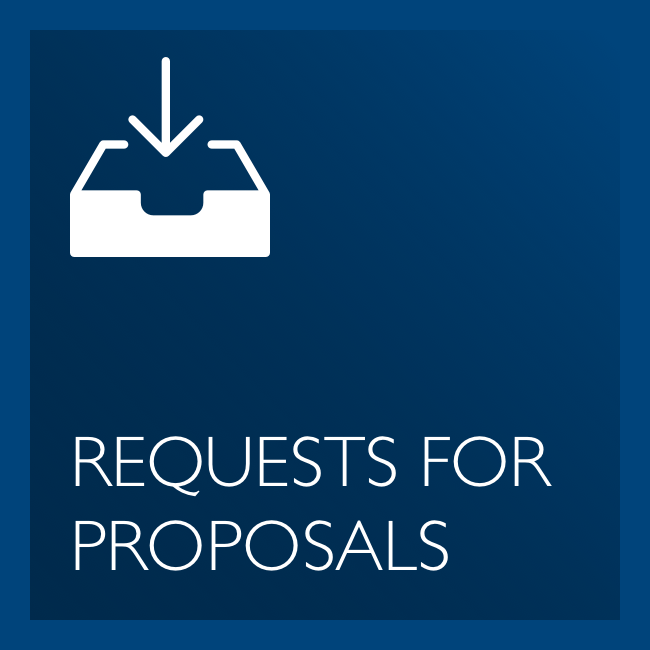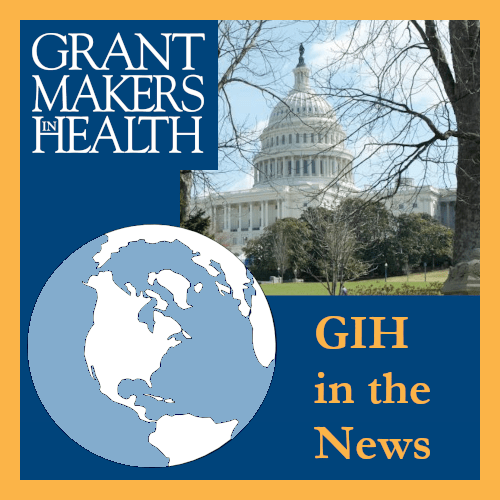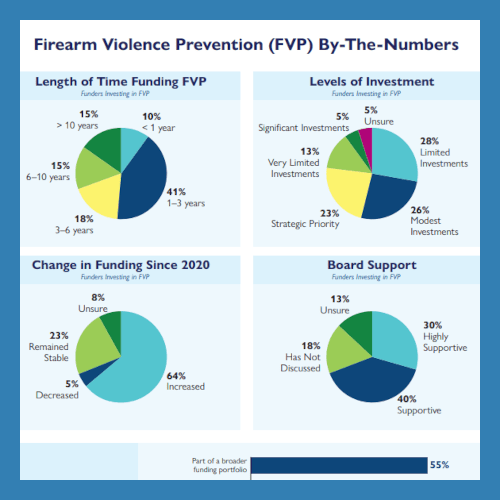Trump Accounts (530A Accounts) & Early Asset Building: Funder-Only Briefing
Hosted by Asset Funders Network and presented in partnership with Grantmakers In Health, Economic Opportunity Funders, Tax Equity Funders Network, and Early Childhood Funders Collaborative. As asset funders, we know that starting early – in childhood – is the best way to create wealth and savings. That’s why we continue to pay close attention to…
New Vaccine Guidance: What Funders Should Know
Join us for a timely webinar exploring the Department of Health and Human Services’ recent changes to routine vaccinations. Experts will discuss the evolving pattern of vaccine recommendations, including the January 5 update to the Childhood Immunization Schedule, which reduces the number of routinely recommended vaccines and introduces new categories for highrisk groups and shared decisionmaking.
Our speakers will discuss what these changes mean for vaccine access, what to expect moving forward, and how crosssector partners are collaborating to ensure continued coverage. We will also highlight opportunities for philanthropy to get involved.
Communities Fighting Back to Prevent Firearm Violence
Can communities sustain the fight against firearm violence amid shrinking federal support? In Newark, New Jersey, local funders and advocates are showing what’s possible.
This panel brings together public health leaders, funders, and community advocates for a conversation on how democratizing access to data can empower community organizations as collaborators for public safety, and how funders can invest in, scale, and sustain these efforts. Although this discussion is rooted in Newark’s urban setting, the approaches highlighted offer valuable lessons for all funders interested in community safety.
Building Health and Wealth: A Memphis Case Study for Advancing Economic Mobility
This webinar explored how cross-sector collaborations among neighborhood organizations, small businesses, and health care systems are driving measurable change to improve health outcomes and expand economic mobility. This session spotlighted a place-based approach anchored in the Memphis Medical District Collaborative, with insights from the Hyde Family Foundation and Methodist Le Bonheur Healthcare. While rooted in Memphis, the strategies highlighted offer practical lessons for communities nationwide. Together, these organizations are investing in neighborhood revitalization, small business development, and health care workforce pipelines to create the conditions for health and economic opportunity for all.
Pottstown Regional Community Foundation: August 2025
The Pottstown Regional Community Foundation (PRCF) will launch its 2025 Fall Grant Round. For this final grant round of the calendar year, the foundation prioritizes organizations that demonstrate clear alignment with PRCF’s Results Framework and have not yet received an award this calendar year. Competitive requests will be supported by goals stated in community and regional plans and address needs communicated in foundation or other research studies.
Medicaid’s Role in Preventing & Ending Homelessness
While it was never the pathway to ensuring health care as a human right unto itself, Medicaid inarguably saves lives. Millions would be homeless if not for the services Medicaid supports, and those who experience homelessness rely on it to survive. But the federal government has drastically threatened Medicaid’s power. This webinar was a timely discussion on how Medicaid prevents and helps to end homelessness, the status of federal funding for Medicaid, state-level opportunities for organizing, and what philanthropy can do to mitigate the harms of defunding this crucial component of the social safety net. Speakers included Michelle Schneidermann of the California Health Care Foundation and Bobby Watts of the National Health Care for the Homeless Council.
Reducing Gun Violence in New Orleans through Cross-Sector Collaboration with Philanthropy
Firearm violence is a preventable public health issue that affects communities across the United States. Yet, rates of exposure vary significantly from one region to another, shaped by socio-economic disparities, demographics, and local gun policies. This webinar explores the role of multi-sector partnerships, including the philanthropic sector, to effectively reduce firearm violence.
The moderated discussion will be a candid conversation about best practices and key challenges in developing, implementing, evaluating, and sustaining violence intervention programs. Panelists include credible messengers from a community-based organization, local government, and an academic research partner, who are collaborating to reduce violence through community and hospital-based programs in New Orleans, Louisiana. Participants will leave the session with a better understanding of the critical role of philanthropy in advancing efforts to reduce firearm violence, along with insights to facilitate successful cross-sector collaboration.
Cara V. James Speaks Up on Federal Disruption with Inside Philanthropy
Grantmakers In Health (GIH) President and CEO Cara V. James was interviewed for an Inside Philanthropy article published on April 30, 2025. The piece outlines philanthropy’s reactions to the sweeping cuts to public health infrastructure in the United States, the consequences of these cuts, and the importance of remaining committed to our values.
Navigating Birth Justice and Reproductive Equity in Precarious Times: Insights, Challenges, and Strategies for Funders
The birth justice and reproductive equity landscape in the U.S. has continued to shift following the 2022 Dobbs ruling, which overturned Roe v. Wade. In addition to reduced abortion access, communities, birthing people, and the partners working with them are facing growing challenges to reproductive and perinatal care—including uncertainty around Medicaid and other public funding critical to sustaining services.
This webinar will bring together health funders to share insights, experiences, and challenges encountered while supporting this work in an evolving landscape. The discussion will focus on how s funders are navigating the legal, policy, and funding changes and their investments that center the dignity, safety, and autonomy of birthing people and their communities.
Please note this webinar will not be recorded as we want this to be a safe space for a candid discussion.
New Grantmakers In Health Survey Finds a Significant Growth in Firearm Violence Prevention Investments Among Health Funders
Washington, DC, March 14, 2025—At a time when firearm violence is a leading cause of death for children and teens, a new Grantmakers In Health survey of health funding organizations found that philanthropic investments in firearm violence prevention are growing in terms of both the number of funders supporting this work and the dollar amounts…
Newsletter Sign Up
Want to sign up for the GIH Bulletin? Click here to get on the list.
Contribute to the GIH Bulletin and Blog
If you are interested in contributing your story or expertise to the GIH community please review our Editorial Submission Guidelines.



